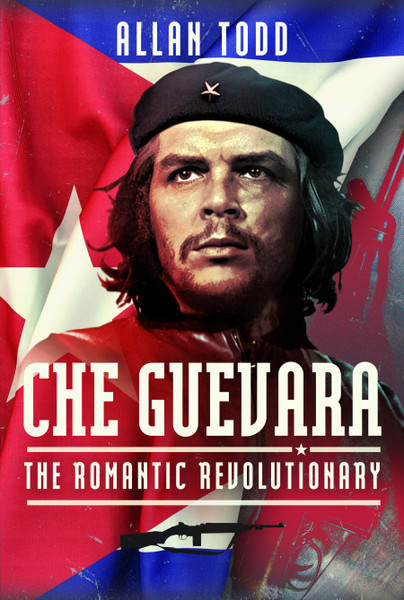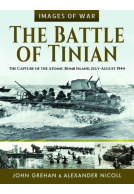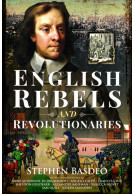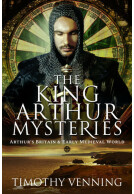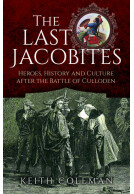The Cuban Missile Crisis (Hardback)
To Armageddon and Beyond
Imprint: Pen & Sword History
Pages: 224
Illustrations: 40 mono illustrations
ISBN: 9781526779786
Published: 18th October 2023
(click here for international delivery rates)
Need a currency converter? Check XE.com for live rates
| Other formats available - Buy the Hardback and get the eBook for £1.99! | Price |
|---|---|
| The Cuban Missile Crisis ePub (4.1 MB) Add to Basket | £6.99 |
It is sixty years since the events of October 1962 brought the world close to nuclear catastrophe. The Cuban missile crisis has long been recognised as the moment of greatest danger in the life (and near death) of humanity. In those sixty years, our knowledge and understanding of events have undergone significant change. There are some reasons to be encouraged, inasmuch as we have learned how both President John F. Kennedy and Premier Nikita Khrushchev sought to avoid nuclear war.
More ominously, we have learned of incidents and events that suggest nuclear weapons might have been used by subordinate military commanders, in circumstances frequently unknown to their political leaders. Decisions whether to use nuclear weapons lay in the hands of often junior military commanders, some of whom were perilously close to crossing the nuclear threshold. This does not mean – as often assumed – that if some nuclear weapons were used, escalation to all-out war was inevitable. Yet the undoubted risk of thermonuclear war in these circumstances threatened the very survival of civilisation. Hundreds, if not thousands, of millions of people would have died from immediate and short-term effects, while the longer-term prospect of a ‘Nuclear Winter’ portended the virtual extinction of humanity.
Drawing lessons from sixty years ago faces significant challenges. If we draw lessons only to discover our understanding was mistaken, we might well have drawn the wrong lessons. Many received wisdoms about the crisis have been shown to be misleading. What is striking is how after forty or fifty or even sixty years, new evidence has emerged to challenge previously accepted explanations.
It is for the reader to reach their own verdicts on the history of the crisis, and how much we owe to political leaders who averted catastrophe (as well as how their words and deeds helped create the crisis in the first place). It is for the reader to conclude how close we came to nuclear war. Whatever conclusions are reached, one overriding lesson looms large. However we judge the actions of political and military leaders, one factor was crucial in why we avoided nuclear war in 1962. It was luck. In October 1962, humanity was very lucky. Will we be so lucky next time?
Article: Professor chronicles Cuban Missile Crisis
Cambrian News (South)
This book is an outstanding contribution to the ever-growing literature on the truly historic set of events making up the ‘Cuban missile crisis’. While experts on the crisis will be familiar with many of the issues confronted, they will discover probably the best-written account of them, will surely learn something new, and be asked to question what they had come to think was settled.
Ken Booth FBA, Distinguished Research Professor, Aberystwyth University
About Len Scott
Len Scott is Emeritus Professor of International History and Intelligence Studies at Aberystwyth University, where he taught for twenty-five years and was Director of the Centre for Intelligence and International Security Studies (CIISS). He also served as Dean of the Social Science Faculty for ten years. During the 1980s, he worked for four years as political adviser to the Shadow Foreign Secretary, Rt Hon Denis Healey MP, and then in Whitehall as a civil servant in Her Majesty’s Treasury. Professor Scott has published extensively on Cold War history, nuclear weapons, and secret intelligence. His writing on the Cuban missile crisis includes The Cuban Missile Crisis and the Threat of Nuclear War: Lessons from History (Bloomsbury, 2007); An International History of the Cuban Missile Crisis: A 50-year Retrospective [co-edited with David Gioe and Christopher Andrew] (Routledge, 2014) and The Cuban Missile Crisis: A Critical Reappraisal [co-edited with R. Gerald Hughes] (Routledge, 2015). Professor Scott is a Fellow of the Learned Society of Wales and a Fellow of the Royal Historical Society.
Che Guevara The Romantic Revolutionary (Hardback)
Although Che Guevara was murdered almost sixty years ago, the famous red-and-black image of him is still widely seen around the world: at leftist political demonstrations and, ironically - given his strong opposition to capitalism - on many commercial products. However, he was a controversial figure during his lifetime - and remains so today. On both the political left and the political right, attitudes to him vary widely: while some see him as a romantic, highly-principled and legendary fighter for the world’s poor and exploited masses, others depict him either as an unrealistic and thus irrelevant…
By Allan ToddClick here to buy both titles for £47.00








